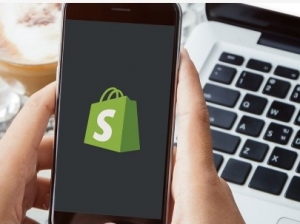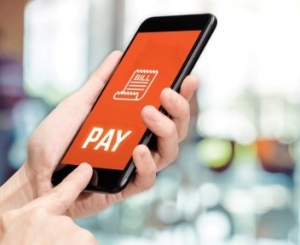Welcome to another weekly Friday fintech, payments, and e-commerce news and business intelligence roundup. I don’t know about you we’re ready to start barbecuing even if it requires us to keep a social distance from the hamburgers until they’re cooked. We’re getting ahead of ourselves, so in the meantime let’s jump into the payments news that happened this week.

Stability in the storm: US banks in the pandemic and the next normal
The humanitarian and economic fallout of the COVID-19 pandemic has upset the global balance. No person, industry, or aspect of society remains untouched. The banking industry can uniquely act as a primary source of stability. Banks guard savings and investments, provide sound credit and financing, deliver safe and secure payments and transaction services, and offer trusted advice. They are not simply commercial enterprises but providers of important services to individuals and communities, playing a vital role in the functioning of the economy. Read more…

Post-pandemic payments path leading to the new normal
Just what does the “new normal” look like in a post-pandemic payments world? We reached out to Brady Harris, CEO of programmable payments company Dwolla for his insight into what’s ahead for business and the payments industry. The impact of coronavirus on business and consumers is dramatic although it varies widely from devastating to encouraging according to Harris. He provided Payments NEXT with several examples of the impact on business. Read more…

Payment apps may pose a coronavirus scam threat, AARP says
Mobile payment apps like PayPal and Venmo could expose consumers to coronavirus-related scams, according to AARP, an advocacy group for older Americans. Peer-to-peer payment platforms, which allow for the digital transfer of money from one user to another, have risen in popularity, especially among younger adults. These programs — other examples include Zelle, Square, Apple Pay, and Google Pay — allow for a convenient way to transact. But they also pose a fraud threat due to the difficulty of recovering funds sent via the platforms, according to AARP. Read more…

Americans have lost $13.4 million to fraud linked to COVID-19
COVID-19 scams have cost more than 18,000 Americans a total of $13.4 million since the beginning of the year, according to the Federal Trade Commission. The top fraud categories are related to travel and vacations, online shopping, bogus text messages, and imposter scams. The figure is based on 18,235 reports related to COVID-19 that the agency has received from consumers since Jan. 1 although the figure could be much higher as many consumers don’t report fraud incidents. Read more…

Curbside pickup at retail stores surges 208% during coronavirus pandemic
The number of orders placed online and picked up at stores by customers surged 208% between April 1 and April 20 compared with a year ago, according to Adobe Analytics. Online sales in the U.S. jumped 49% from March 12 to April 11, compared with a baseline from March 1 to March 11. The increases come as many retail stores across the country remain shut to try to curb the spread of Covid-19. Read more…

JC Penney is planning to file for bankruptcy as early as Friday, sources say
JC Penney is planning to file for bankruptcy protection, people familiar with the matter tell CNBC. Its advisors are currently working on a bankruptcy filing that could come early Friday morning. They cautioned there is still a chance that final negotiations between the retailer and its lenders spill into the weekend and delay the filing. JC Penney employed roughly 90,000 full-time and part-time employees as of February. It is working on a plan that would contemplate closing 180 to 200 stores while in bankruptcy. The retailer had 846 department stores as of February. Read more…

Canadian credit unions and IBM plan new payments as a service platform
Credit unions in three Canadian provinces will be looking blue when it comes to modernizing their payments technology and platforms in a new eight-year, $100 million technology services partnership announced between 75 credit unions in Manitoba, Saskatchewan, and Alberta with IBM. The 75 credit unions are members of the Prairie Payments Joint Venture (PPJV) of Credit Union Centrals in the three Canadian prairie provinces and the deal with IBM represents a multimillion-dollar digital transformation for the financial institutions and their customers. Read more…

UK Merchant payments fintech Primer raises £3.8m
UK-based fintech Primer has raised £3.8 million ($4.64 million) in funding, in a round led by venture firm Balderton Capital, featuring former TransferWise CEO, Taavet Hinrikus. Founded by a handful of former PayPal employees, the firm is working on a series of application programming interfaces (APIs) which it hopes will bring greater clarity to the way that multi-geography corporates make payments. Read more…

EBANX launches solution for international websites to accept Caixa debit card in Brazil
EBANX, a Brazilian fintech started offering its international merchants the virtual debit card recently launched by the Brazilian Caixa Econômica Federal. International merchants of EBANX can offer this payment method to their Brazilian consumers. Currently, only 3.5% of online transactions in Brazil are made using debit cards, according to a survey by AMI (Americas Market Intelligence). There are about 115 million active debit cards in the country, according to the Central Bank of Brazil, against 98 million credit cards. Read more…

EBANX launches transparent checkout for Shopify in Brazil
Brazilian payments fintech EBANX announces the launch of its Sell in LatAm EBANX Checkout for Shopify, a single integration transparent checkout for foreign stores that sell to Brazil through the Shopify platform. Unlike the previous checkout, where the consumer was redirected to EBANX online to complete the purchase, the transparent checkout keeps them on the same page providing a seamless shopping experience. Consumers can see product prices in their local currency and pay with local payment methods such as domestic credit cards, that can only process local currency, installments, and boleto bancário, a payment voucher widely used in the country. Read more…

Nearly half of consumers worried about fraud in digital transactions [India]
Efforts to encourage contactless digital payments over cash as a hygiene measure are resonating with consumers – one-third (32%) have increased their usage of digital payments (credit and debit card, mobile wallet, and other UPI-based payment methods) aimed at helping curb the spread of COVID-19. About 28% of consumers are now exercising more caution while making payments using various digital modes, according to a study conducted by YouGov and ACI Worldwide. Read more…

74% of Indian consumers to prefer digital payments in 6-9 months
Around 74% of consumers in India will prefer carrying out payments through the digital medium in the next six to nine months, according to a report by Capgemini Research Institute. The change comes in view of the coronavirus pandemic. As per the study, 57% of the Indian consumers were interacting on mobile apps prior to the pandemic, and currently, around 67% of consumers use the medium. Read more…

COVID-19 unleashes fraud attacks, scams on business & young consumers
A new quarterly analysis of global online fraud trends found the telecommunications, e-commerce, and financial services industries have been increasingly impacted along with Millennials among the victims most targeted by fraudsters using COVID-19 scams. Global fraud and identity solutions company TransUnion found suspected fraudulent digital transactions were 5% higher when comparing the periods Jan 1 to March 10 with March 11 to April 28 timeframes. Researchers identified more than 100 million suspected fraudulent transactions from March 11 to April 28. Read more…








LET’S CONNECT